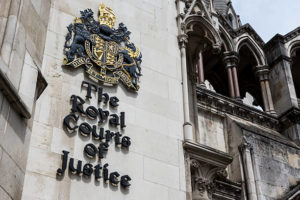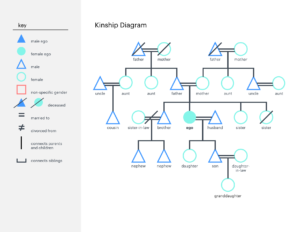
 Roundtable of Scholars Weigh in on Major UK Islamic Family Law Case: Akhter v. Khan (July 2018) At the tail end of last month, a UK court decided a case of family law that has reverberated in legal-academic and media circles alike: what is the status of Islamic law in UK courts? Should state courts recognize Islamic marriages that have not been registered? Does religious law stand in the place of state law? Mr. Justice William touched on these questions in Akhter v. Khan (July 2018), his decision issued from the High Court of Justice of England and Wales. We provide a summary of the lengthy case in the SHARIAsource Case Brief — outlining the facts and presenting excerpts from the original case, which may be found here . We then rounded up six scholars of Islamic family law and related areas to weigh in and debate the implications of the case. Ralph Grillo (University of Sussex) provides an anthropological perspective ; Ralf Michaels (Duke Law School) discusses the ambiguous nature of the decision , while Rebecca Probert (University of Exeter Law School) critiques the decision’s “failure to engage with the actual terms of the Marriage Act of 1949.” Intisar Rabb (Harvard Law School) notes that the decision renders the union “something akin to what classical Islamic law would label a ‘defective marriage.’” Hadeer Soliman , a practicing attorney, and Vishal Vora (Max Planck Institute) assess the practical repercussions of the decision , and discuss what it may signal about the direction of Islamic marriage and marriage as a whole within the UK. Read more. Image credit: Getty Images
Roundtable of Scholars Weigh in on Major UK Islamic Family Law Case: Akhter v. Khan (July 2018) At the tail end of last month, a UK court decided a case of family law that has reverberated in legal-academic and media circles alike: what is the status of Islamic law in UK courts? Should state courts recognize Islamic marriages that have not been registered? Does religious law stand in the place of state law? Mr. Justice William touched on these questions in Akhter v. Khan (July 2018), his decision issued from the High Court of Justice of England and Wales. We provide a summary of the lengthy case in the SHARIAsource Case Brief — outlining the facts and presenting excerpts from the original case, which may be found here . We then rounded up six scholars of Islamic family law and related areas to weigh in and debate the implications of the case. Ralph Grillo (University of Sussex) provides an anthropological perspective ; Ralf Michaels (Duke Law School) discusses the ambiguous nature of the decision , while Rebecca Probert (University of Exeter Law School) critiques the decision’s “failure to engage with the actual terms of the Marriage Act of 1949.” Intisar Rabb (Harvard Law School) notes that the decision renders the union “something akin to what classical Islamic law would label a ‘defective marriage.’” Hadeer Soliman , a practicing attorney, and Vishal Vora (Max Planck Institute) assess the practical repercussions of the decision , and discuss what it may signal about the direction of Islamic marriage and marriage as a whole within the UK. Read more. Image credit: Getty Images
 Commentary :: DNA Tests in Morocco: Marking a Historic Turn in Islamic Law Guest writer Zaynab El Bernoussi (Al Akhwayn University in Ifrane) underscores the October 2017 decision of the Tangiers First Instance Court in which DNA tests were admitted as evidence in a family law case. The plaintiff was a mother who wanted to prove the paternity ( bunuwwa ) and lineage ( nasab ) of her daughter born out of wedlock. This historic move led the Moroccan court to “recognize paternity outside of wedlock,” which was “was relatively unheard of due to the common practice of considering kinship [or paternity] claims in conjunction with lineage and the associated rights to title, names, and surnames.” El Bernoussi explains the domestic and international law implications of this decision. Read more. Image credit: Wired
Commentary :: DNA Tests in Morocco: Marking a Historic Turn in Islamic Law Guest writer Zaynab El Bernoussi (Al Akhwayn University in Ifrane) underscores the October 2017 decision of the Tangiers First Instance Court in which DNA tests were admitted as evidence in a family law case. The plaintiff was a mother who wanted to prove the paternity ( bunuwwa ) and lineage ( nasab ) of her daughter born out of wedlock. This historic move led the Moroccan court to “recognize paternity outside of wedlock,” which was “was relatively unheard of due to the common practice of considering kinship [or paternity] claims in conjunction with lineage and the associated rights to title, names, and surnames.” El Bernoussi explains the domestic and international law implications of this decision. Read more. Image credit: Wired
 Case:: Moroccan Courts Recognize Then Reverse Paternity Recognition of Children Born out of Wedlock (Court of Appeals of Tangiers) A child born out of wedlock is typically not entitled to paternity recognition in Morocco. In an unprecedented move , the First Instance Family Court in Tangiers recognized the familial relationship connecting a father to his biological daughter. The Court also required the man to pay 100,000 MAD (10,500 USD) to the child through her mother for the material and moral harms caused to the child from denial of paternity or familial relations. The defendant appealed the judgment. On October 9, 2017, the Tangiers Court of Appeals overturned the First Instance Court decision, rejecting the DNA tests and any recognition of familial relations. The Court also invalidated the lower court’s use of international conventions, explaining that the child is so “foreign” to or removed from her father that the possibility of their future marriage would not be overruled. Read more. Image credit: Lucid Chart
Case:: Moroccan Courts Recognize Then Reverse Paternity Recognition of Children Born out of Wedlock (Court of Appeals of Tangiers) A child born out of wedlock is typically not entitled to paternity recognition in Morocco. In an unprecedented move , the First Instance Family Court in Tangiers recognized the familial relationship connecting a father to his biological daughter. The Court also required the man to pay 100,000 MAD (10,500 USD) to the child through her mother for the material and moral harms caused to the child from denial of paternity or familial relations. The defendant appealed the judgment. On October 9, 2017, the Tangiers Court of Appeals overturned the First Instance Court decision, rejecting the DNA tests and any recognition of familial relations. The Court also invalidated the lower court’s use of international conventions, explaining that the child is so “foreign” to or removed from her father that the possibility of their future marriage would not be overruled. Read more. Image credit: Lucid Chart
See the full newsletter.

